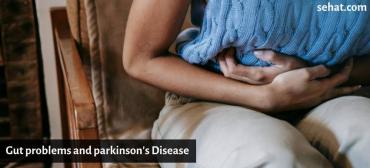Guillain-Barre Syndrome in Children
What is Guillain-Barré syndrome?
Guillain-Barré syndrome (GBS) is a temporary disorder that affects the nerves in the body. GBS can result in muscle weakness, pain, and even temporary paralysis of the facial, chest, and leg muscles. Paralysis of the chest muscles can lead to breathing problems.
What causes Guillain-Barré syndrome?
The exact cause of Guillain-Barré syndrome is unknown. Theories suggest that GBS is an autoimmune disorder (where the body's immune system fights or attacks the peripheral nervous system) that can occur after a viral infection, surgery, trauma, or reaction to an immunization.
The incidence of Guillain-Barré syndrome is one person in 100,000 in the general population. GBS can affect children of all ages.
The majority of children diagnosed with GBS experience a full recovery with no further complications. Recovery often begins within a few weeks after the onset of symptoms.
What are the symptoms of Guillain-Barré syndrome?
The following are the most common symptoms of Guillain-Barré syndrome. However, each child may experience symptoms differently. Symptoms may include:
-
Decreased feeling or pain in fingers and toes
-
Leg weakness or pain progressing to the arms
-
Problems walking
-
Irritability
-
Breathing problems
-
Facial weakness
Your child may experience muscle weakness over a period of one to two weeks. The full extent of the weakness can last up to one to two months with an anticipated full recovery at least one to two years after diagnosis. The symptoms of Guillain-Barré syndrome may resemble other conditions or medical problems. Always consult your child's doctor for a diagnosis.
How is Guillain-Barré syndrome diagnosed?
The diagnosis of GBS is made after the sudden onset of specific symptoms and after diagnostic testing. During a physical examination, your child's doctor will obtain a complete medical history of your child, and may also ask if there is a family history of any medical problems.
Diagnostic tests that may be performed to confirm the diagnosis of Guillain-Barré syndrome may include the following:
-
Blood tests
-
Urine tests
-
Lumbar puncture (spinal tap). A special needle is placed into the lower back, into the spinal canal, which is the area around the spinal cord. The pressure in the spinal canal and brain can then be measured. A small amount of cerebral spinal fluid (CSF) can be removed and sent for testing to determine if there is an infection or other problems. CSF is the fluid that bathes your child's brain and spinal cord.
-
Electromyogram (EMG). A test that measures the electrical activity of a muscle or a group of muscles. An EMG can detect abnormal electrical muscle activity due to diseases and neuromuscular conditions.
Treatment of Guillain-Barré syndrome
Specific treatment for Guillain-Barré syndrome will be determined by your child's doctor based on:
-
Your child's age, overall health, and medical history
-
The extent of the condition
-
Your child's tolerance for specific medications, procedures, or therapies
-
Expectations for the course of the condition
-
Your opinion or preference
There is no cure for Guillain-Barré syndrome. The key to medically managing GBS is early detection. This condition is usually reversible, but can be life-threatening. A child with GBS requires immediate hospitalization in the intensive care unit and close monitoring by the health care team.
The goal of treatment is to prevent breathing problems and provide supportive care (relief of symptoms) to your child. Medications are used to control pain and other conditions that may be present. In addition, treatments such as plasmapheresis or immunoglobulin administration may be used to suppress the immune system and/or reduce inflammation caused by the immune system's response to the disease. Plasmapheresis is a procedure which removes the plasma (liquid part of the blood) and replaces it with other fluids. Antibodies are also removed with the plasma, which is thought to help reduce the symptoms of the disease. Another treatment is the administration of immunoglobulin, a blood product that helps to decrease the immune system's attack on the nervous system.
The extent of the problem is dependent on the severity of the condition and the presence of other organ system problems that could affect your child. In severe cases, a breathing machine may be required to help your child breath easier.
During the course of this condition, your child may develop stiff muscles and contracted joints. As your child recovers, physical, occupational, or speech therapy may be necessary to help him or her regain muscle strength and/or speech and swallowing skills.
The healthcare team educates your family after hospitalization on how to best care for your child at home and outlines specific clinical problems that require immediate medical attention by his or her doctor. A child with GBS requires frequent medical evaluations following hospitalization. Your child's recovery period requires adequate amounts of activity and rest.





















